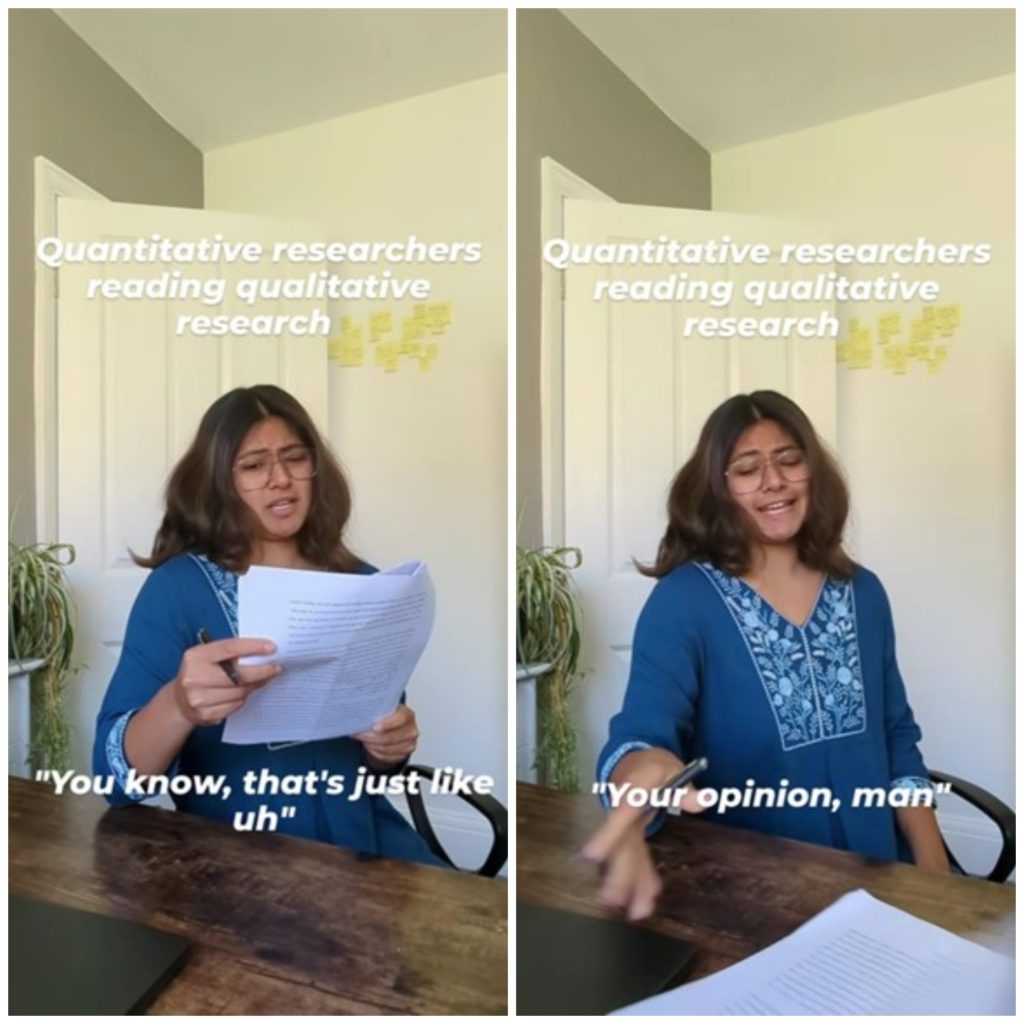Resource published about Wageningen scientists being intimidated by fellow scientists. The opposing parties employed mud-slinging tactics unworthy of scientists. The Wageningen scientists were accused of not being real scientists. However, if we remove the layers of dirt that were smeared, we arrive at the root of the conflict: a simple misunderstanding, or two, that got out of hand. Recognise it in your personal life? It would appear such issues are also possible at an academic level.

The meme shown here summarises a tried and tested paradigmatic struggle in science (yes, memes are an excellent way to explain the world). In the case at hand, the misunderstanding was specifically about constructivism. Should you be unfamiliar with it, this concept can be easily explained. Buckle up.
Constructivism states that knowledge and facts can not be objectively observed in reality, but are constructed by the scientist, whose subconscious interests and convictions ius never completely neutral. The counterpart, positivism, states that objective and measurable observations lead us to valid knowledge about the world. This is in keeping with natural sciences. In social sciences, we see both philosophies.
The aforementioned conflict with the ‘mud-slingers’ was about the following: The mud-slingers stated that hunting for sport had financial advantages, on which nature reserves depended, particularly in their first few years, They published a paper entitled: ‘Complementary benefits of tourism and hunting to communal conservancies in Namibia’. Sounds rather positive about hunting, and that is precisely the issue. Based on the same data, you could also decide on a completely different title, such as:‘Conservancies and its dependency on hunting: the role of income stream variation’. Even these data (the sources of income) have been the subject of quite a few assumptions, but okay.
The Wageningen scientists explained constructivism in their paper and called for more reflection on the ‘mud-slingers’’position since they are ill-served by a positive frame on hunting. The misunderstanding lies in the fact that the mudslingers did not understand (or acknowledge) constructivism. Facts are facts, and if you were to tell me that my presented facts or the interpretation thereof, are in a sense constructed, you are, in fact, accusing me of flights of fancy. A personal attack. Shit hit the fan.
I suspect there is a second misunderstanding: acknowledging constructivism does not mean that positivism is completely absent in social scientific research. The fact that there is a significant financial gain cannot be entirely “deconstructed”, as it can be observed. Some aspects of the study align with positivism. Others don’t. That is what my multidisciplinary courses have taught me.
In our personal life, couples counselling or a psychologist can help establish more mutual understanding. An academic equivalent is needed (UNESCO, are you paying attention?). That would prevent a lot of fuss and legal expenses. Within WUR, this may also prove interesting. What colleagues or teachers would you nominate for a session on the couch?
Steven is doing a Master’s degree in Economics and Policy and enjoys hitting the squash court. He is always up for a game of squash and a good conversation. You can email him here.



